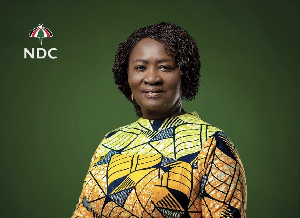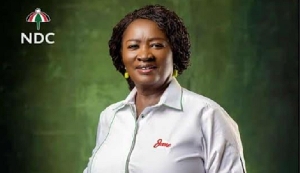 The pandemic has been described as the biggest global health crisis in recent times
The pandemic has been described as the biggest global health crisis in recent times
Samuel Gali, 10, and his younger brother are new converts of hygienic practices.
They compete daily in hand washing with soap under running water -thanks to COVID-19.
The brothers and their peers in Monkra Community in the Krachi West District of the Oti region are also often spotted in home-made nose masks contributing to stop the spread of the virus in their small way.
Cursory observation indicates that several thousands of children at the countryside have adopted COVID-19 new norms, especially the use of tippy-taps for regular hand washing.
Observing protocols
The fun is on. Hand washing with soap under running water has become pleasurable for rural dwellers.
But these children are missing one thing-formal education. Schools have been closed as a measure to contain the spread of COVID-19.
Cities have responded positively with e-learning options for children in the urban centres.
Unfortunately, children in rural areas have been largely left to their fate, with many gallivanting street corners and refuse dumps.
The World Vision
But the World Vision Ghana has started providing some interventions with reading lessons and COVID-19 etiquettes using Community Information Centres (CIC).
Before every reading lesson, the children are taken through at least one protocol thoroughly and are taught how to practise and the reason why it’s important to observe the protocols.
For instance the children are given face-masks and given directions in English and local dialects on how to wear, remove and wash the masks after use.
Parents are not left behind as they join the children and also play a supervisory role to ensure they are seated and follow the lessons through to the end.
Ms Ewurabena Dadzie, the Health Technical Manager of World Vision Ghana said looking at the spread of the virus a combination of channels was used to reach community members in remote areas.
She said riding on the back of the existence of Community Information Centres in communities, the Organization developed messages in local dialects and shared with community leaders.
As part of the strategies, Ms Dadzie explained that health volunteers were trained, to go on the platforms to educate community members on preventive measures including; coughing, sneezing and washing etiquettes.
The team reinforced its messages with community visits taking the people through hands on practical lessons including; the building of tippy taps - a hands-free device for hand washing that is specially designed for rural communities, where there is no running water.
“We had to use a combined approach because some of the anti-COVID-19 protocols like covering your mouth and nose when coughing can be described on the radio, but with other community members can only practise them when given hands-on training.
“Wearing, removing, and reuse processes of face mask is not a regular thing we use to do so it is important we demonstrate it for community members to see and be familiar. The same applies to the use of sanitizer, and social distancing,” she stated.
Ms Dadzi said the efforts were to complement that of government and the COVID-19 response strategy has far benefited some 440 communities in 14 regions.
Mrs Joyce Larnyoh, Country Director for International Child Development, says the situation where rural folks are cut off from the country as a result of infrastructure deficit shows how wide the inequality gap between the urban and rural settings was.
According to her, majority of the areas lacked health facilities, the required tools for health workers to work with and needed to be addressed.
“This virus has once again shown how fragile we are as a country and the need to deliberately set the agenda to improve the situation,” she said.
Mrs Larnyoh says to progressively transition into the new norm, government, as a special intervention to reach rural folks, should scale up the CIC sensitization and other channels of communications.
She called on the government to resource the local assemblies to undertake house visits to educate rural dwellers to stem community spread of the virus.
- Commonwealth countries must create 5,000 jobs everyday till 2030 - Foreign Affairs Minister
- Use COVID-19 fund to strengthen health care, immunization financing — HFFG
- Parliament records a new case of coronavirus
- Breach of coronavirus safety protocols: GMA calls for action
- Chadians line up for Sinopharm as coronavirus vaccination campaign begins
- Read all related articles












